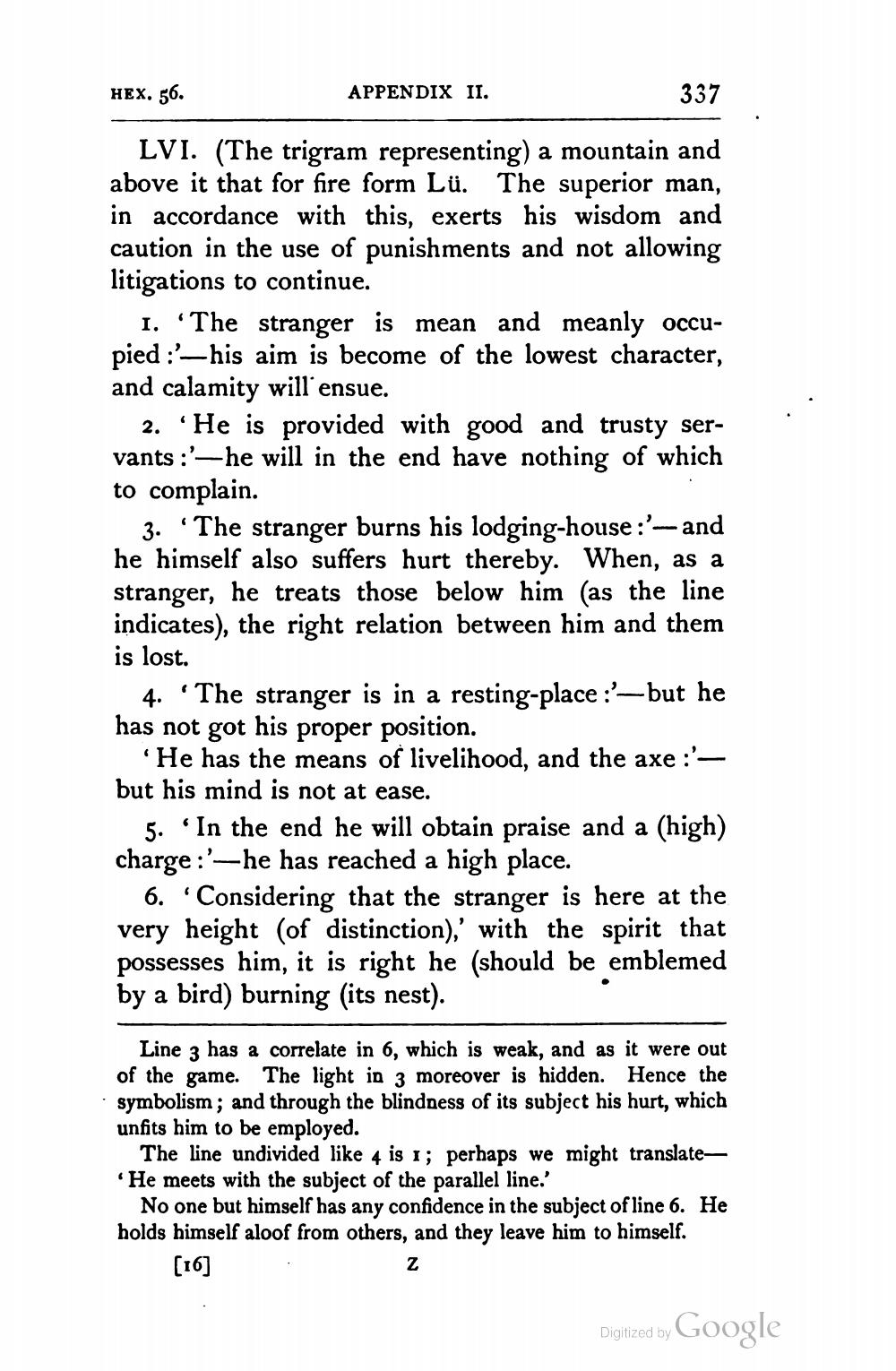________________
HEX. 56.
APPENDIX II.
337
LVI. (The trigram representing) a mountain and above it that for fire form Lü. The superior man, in accordance with this, exerts his wisdom and caution in the use of punishments and not allowing litigations to continue.
1. “The stranger is mean and meanly occupied :-his aim is become of the lowest character, and calamity will ensue.
2. 'He is provided with good and trusty servants :'- he will in the end have nothing of which to complain.
3. “The stranger burns his lodging-house :'--and he himself also suffers hurt thereby. When, as a stranger, he treats those below him (as the line indicates), the right relation between him and them is lost.
4. “The stranger is in a resting-place ::—but he has not got his proper position.
He has the means of livelihood, and the axe :'but his mind is not at ease.
5. 'In the end he will obtain praise and a (high) charge :'-he has reached a high place.
6. Considering that the stranger is here at the very height (of distinction),' with the spirit that possesses him, it is right he (should be emblemed by a bird) burning (its nest).
Line 3 has a correlate in 6, which is weak, and as it were out of the game. The light in 3 moreover is hidden. Hence the symbolism; and through the blindness of its subject his hurt, which unfits him to be employed.
The line undivided like 4 is r; perhaps we might translateHe meets with the subject of the parallel line.'
No one but himself has any confidence in the subject of line 6. He holds himself aloof from others, and they leave him to himself.
[16]
Digitized by Google




